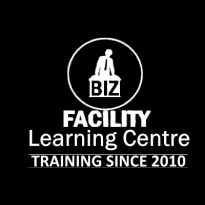HR Series Session 4: Disputes, Disciplinaries & Dismissals
Disputes, Disciplinaries & Dismissals

Lectures -7
Resources -1
Duration -2 hours
Lifetime Access

Lifetime Access
30-days Money-Back Guarantee
Get your team access to 10000+ top Tutorials Point courses anytime, anywhere.
Course Description
The principle of fair labour practice is a fundamental right that is guaranteed in the Constitution of the Republic of South Africa which is the supreme law of the land.
Whether you are a small business owner, sole proprietor, partnership or large corporation, if you employ staff you should be equipped with the basics conditions of employment. Should a dispute arise, you must also be informed of the right steps to take. Most importantly, you must know what documentation to keep.
Topics Discussed:
- Disputes
- Disputes – Different types of disputes
- Freedom of association;
- Organisational rights;
- Collective agreements;
- Mutual interest issues;
- Unfair dismissals;
- Unfair labour practices; and
- Unfair discrimination
- If you are an employee in dispute with your employer, or vice versa, over a matter such as:
- Dismissal;
- Wages and working conditions;
- Workplace changes;
- Or discrimination you may want to ask the CCMA to conciliate or even arbitrate your dispute.
- A union or employers' organisation may also initiate this action. You do not need the other party's consent before taking a matter to the CCMA
- Speedier dispute resolution process called con-arb
- Disciplinaries
- Disciplinary measures short of dismissal
- verbal warnings for minor transgressions
- written warnings for consistent misconduct
- final warnings for persistent misconduct
- Duration of Warnings
- a verbal warning should remain valid for 3 months
- a written warning should remain valid for 6 months
- a final written warning should remain valid for 12 months
- Dismissals
- Fair reasons for dismissal
- Dismissals for misconduct
- Fair procedure
- Disciplinary records
- Dismissals and industrial action
- Constructive dismissals
- Guidelines in cases of dismissal for misconduct
- Guidelines in cases of dismissal for poor work performance
- Incapacity: Ill health and injury
- Guidelines in cases of dismissal arising from ill health or injury
Goals
Topics Discussed:
- Disputes
- Disputes – Different types of disputes
- Freedom of association;
- Organisational rights;
- Collective agreements;
- Mutual interest issues;
- Unfair dismissals;
- Unfair labour practices; and
- Unfair discrimination
- If you are an employee in dispute with your employer, or vice versa, over a matter such as:
- Dismissal;
- Wages and working conditions;
- Workplace changes;
- Or discrimination you may want to ask the CCMA to conciliate or even arbitrate your dispute.
- A union or employers' organisation may also initiate this action. You do not need the other party's consent before taking a matter to the CCMA
- Speedier dispute resolution process called con-arb
- Disciplinaries
- Disciplinary measures short of dismissal
- verbal warnings for minor transgressions
- written warnings for consistent misconduct
- final warnings for persistent misconduct
- Duration of Warnings
- a verbal warning should remain valid for 3 months
- a written warning should remain valid for 6 months
- a final written warning should remain valid for 12 months
- Dismissals
- Fair reasons for dismissal
- Dismissals for misconduct
- Fair procedure
- Disciplinary records
- Dismissals and industrial action
- Constructive dismissals
- Guidelines in cases of dismissal for misconduct
- Guidelines in cases of dismissal for poor work performance
- Incapacity: Ill health and injury
- Guidelines in cases of dismissal arising from ill health or injury
Prerequisites
No prerequisites for this course

Curriculum
Check out the detailed breakdown of what’s inside the course
Disputes, Disciplinaries & Dismissals Course
7 Lectures
-
Part 1 17:30 17:30
-
Part 2 28:10 28:10
-
Part 3 06:37 06:37
-
Part 4 11:09 11:09
-
Part 5 06:57 06:57
-
Part 6 31:51 31:51
-
Part 7 20:01 20:01
Instructor Details

Bizfacility
We offer a variety of self-study courses, and packages to provide an understanding of all aspects of Bookkeeping, Accounting, Financial instruments, Management Accounting and Financial procedures that are essential for the running of a business.
As finance is a universal language, all online courses offered through UDEMY, are useful to anyone in the world as it complies with IFRS (International Framework of Reporting Standards) and does not include any country-specific VAT or tax content.
Course Certificate
Use your certificate to make a career change or to advance in your current career.

Our students work
with the Best


































Related Video Courses
View MoreAnnual Membership
Become a valued member of Tutorials Point and enjoy unlimited access to our vast library of top-rated Video Courses
Subscribe now
Online Certifications
Master prominent technologies at full length and become a valued certified professional.
Explore Now



 Updated on Jan, 2026
Updated on Jan, 2026
 Language - English
Language - English